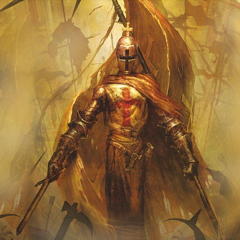I asked Vox three theological questions which in all honesty I expected him to ignore as I know he hates theological debates and the inevitable retardation that follows.
Now I want to make a few things clear:
Leave the man alone and don’t go asking him more questions on this. The point here is not Vox specifically or to have a real in depth debate with him or any of that. My curiosity on his views was due to the fact that he is intelligent and he has a different perspective and one can usually learn something by testing your own views with someone at least able to think on your level who has a different take.
The purpose of this post is to share in general terms the two perspectives and hopefully create an atmosphere of better overall understanding of some fundamental concepts.
The point is to question my own perspective as much as I might question his and see if anything worthwhile shakes out.
And he also had another response from the AI he trained (I think) which he named Vox DAI, here . I found this last to be really quite irrelevant anyway but I added it for the sake of thoroughness. Though I find engaging with it at all pointless so will not do so.
Now to each question I asked, his reply and my view of the exchange.
If God (Jesus) did in fact establish a Church (or at least a doctrine) to follow on Earth, then surely it necessarily must be a) infallible, and b) eternal (at least until end times). Agree? If not, why not? (In this case please explain the reasoning as I doubt I can infer it otherwise)
Disagree. The logic doesn’t follow at all. As with most appeals to “then surely it necessarily” this reveals nothing more than the formulator’s inability to construct the correct syllogisms. The conflation of “eternal” with “until end times” is a giveaway of the formulator’s tendency toward ambiguity.
He is correct that I misused the word eternal. I meant it as merely the time between now and the end times (revelation or the apocalypse) so not actually “eternal” but rather “lasting for the whole of the duration of mankind before the second coming of Christ.” I thought I made it relatively clear in the parenthetical but it is true that it is a conflation, and as I also agree that whatever happens after the second coming may well be an entirely new and different set up, it is at least possibly true that the Church (even in the form of its adherents becoming eternal in the afterlife) as an institution as such may not in fact continue to exist beyond that.
So ok, I asked the question badly and I should have said b) last at least until the second coming.
The reason being He said He would be with us until the end times.
Indeed, the common use of the marriage metaphor for the relationship between Church and Christ indicates that it not only isn’t necessarily eternal, but cannot be.
Furthermore, Jesus Christ knew his apostles were fallible and even predicted some of their specific failures. There is no reason to believe that he had higher expectations of his future followers who would be even further removed from his teachings. I absolutely refuse to believe that Jesus Christ was less intellectually capable or had a weaker grasp on human behavioral patterns than Siddhartha Gautama or me.
The second part appears to be Vox’s lack of understanding that the infallibility presumed by Catholics for their Church is not anything to do with humans, but an aspect of God and hence not reliant on human beings. I am a little surprised if that is how he thinks of it, because Papal infallibility and indeed the Magisterium of the Catholic Church has NEVER been assumed to be the result of any human, including the Popes. It is our belief that Jesus Himself protects the Magisterium AND Ex-Cathedra pronouncements by VALID Popes from error through His own supernatural infallibility.
The reason being that a loving God would give his flawed humans not only a way to be saved, but also a way that is absolutely true that gets transmitted faithfully through the ages without any error in it. From my perspective, which is also probabilistic, not binary (though in some parts it is absolute, but based on faith, not probability), to NOT have such a thing would mean that:
- No one could be sure that ANYTHING is really true or happened as it has been passed down to us by apostolic succession (which preserves the infallibility by being the legitimate way to pass the truth down the ages). If there is no infallible Church then anyone might be right or wrong about an infinite number of things. There could never be certainty of a true path to salvation. (Vox gives his reasoning on this in the second question; in his view that path being simple (even if not certain)).
- Vox subscribes to the Nicean Credo (as explained in exhaustive detail here). But why he should do so is unclear since no doctrine or Church is required (and in any case you cannot be certain of it being infallible anyway). The only answer I see is in some responses he gave on SG that essentially stated he thrives on probabilistic thinking, uncertainty and chaos. I don’t deny that my own mind is quite comfortable with a LOT of uncertainty and I too am a probabilistic thinker, however, in this instance it implies Vox only has a belief that he himself must recognise is only a probability, not a certainty. And in fact he does state this while also pointing out that all of us also have beliefs that are only probabilities, not absolute facts, which is true, since we are all flawed, but it does seem to be a very subjective and not very logical way of selecting the Nicean Credo and rejecting all the others. And if there is no need for doctrine or Church then the Credo itself, and indeed the Bible would not exist, since these were both put together as a result of there being a Church that did both (as well as many other things), so the first principle of how or why that specific Credo should be special is missing. Or the Church must have been required at least so as to put the Bible and the Nicean Credo together (and infallibly so, or at least so close to infallible as to satisfy his probability level to believe it, presumably to the point he would rather die than deny it, which is a pretty high bar, but one I have myself so I know it’s certainly possible to have to this level even if you don’t have certainty.)
- It also needs to be noted that the Nicean Credo of 325 AD was later altered in response to heretics making various claims, but this “alteration” was really (as most of Catholic dogma is) merely a better explanation of some details known by all Catholics but now being brought into question by deceivers (heretics), and so requiring a more detailed explanation. Vox appears to think this change was the adding in of things that were not really known by the Church, but that were added in to fortify their position nevertheless. I think this is wrong and a common error of Protestants. They assume a change is an actual change, instead of a more detailed version to combat the lies. If I say I am a man and someone then says I am a Pygmie, I can then say, “no, I am not, I am a six foot two white guy” that’s not changing who I am or the fact I am a man or my nature. It is simply adding in true information to counter the false one being made.
- It would imply God is leaving us to our own devices for knowing how to behave; which doesn’t seem very loving, but Vox answers this in the second question below.
If you do not agree with the premise that God DID in fact establish a Church (or at least a doctrine) then how do you reconcile this with God being a loving God?
Easily. First, God sent Jesus to rescue us from our fate under His own rules. He values us more than He values His system. Second, Jesus said that wherever two or three are gathered in his name, he would be there. Both are powerful indications of love that require neither Church nor Doctrine.
So… if I understand him correctly Vox believes God has a system (or rules), but he breaks it for love of us. And apparently this means we are ok not to follow them? Because hey, God will save us anyway? Now I know Vox doesn’t subscribe to the retarded concept of once saved always saved, because he expressly stated so in a blog post somewhere years ago, but that logically means he agrees God has some rules. So we are supposed to follow them? But that is only an ideal condition and it doesn’t really matter if we don’t because He’ll probably save us anyway, which is why He hasn’t bothered to make them explicit and infallible? Seems a bit of a hippie and slapdash way of doing things, and not very logical, but I think Vox gets around that by what I assume is his belief that simply loving God back is enough. I have to assume that because his next point is that all it takes for Jesus to be with you is if people (you and at least one other) gather in His name. Sounds like a congregation to me (however small) which again implies a Church, but I guess Vox means at a stretch it could just be a couple of friends discussing Jesus over a beer. I don’t know, I’m trying to give maximum parameters of latitude here to then see how it stacks up against my own beliefs.
As far as I can tell Vox seems to subscribe to the general Protestant view that all you need to do is love God and you’re gonna be saved.
There is certainly some evidence that could be true, Jesus did say all you need to do is love God and love your neighbour.
So in a very summarised form it is valid.
HOWEVER…
There are many other things Jesus said, such as to eat of His Flesh and drink of His Blood in memory of him and in order to have everlasting life. It is not a casual thing, it is repeated in all the gospels and quite specifically each time.
In John 6:53-59, Mark 14:22-25, Luke 22:18-20, Matthew 26:26-28, and 1 Corinthians 11:23-25. It is a central tenet of Catholicism that the Holy Mass is a sacrament and includes transubstantiation, and there have been at least 7 cases of transubstantiation being essentially proven in a lab that I am aware of.
It seems to be a very important part of being saved, along with Baptism. And I know Vox believes at least in baptism. But why? After all the Bible that tells us so according to his view was put together by fallible men who acted and belonged and formed a Church he thinks is not required. How could he possibly believe the Bible or the things in it are absolutes or even worthy of respect since they have no specific authority or infallibility in his view?
And if some yes and some no, why baptism but not the Holy Mass complete with transubstantiation?
If all we need to do to is to love God and our neighbour, why bother with baptism or the mass or any of the other things we are told to do like in the ten commandments?
Jesus also gave the power to lose and bind to the apostles and Peter the keys, in:
Isaiah 22:22, Matthew 16:19, and Revelation 3:7
A brief but decent explanation is here .
So what was that about? It died with the Apostles and apostolic succession means nothing?
I could go on, but I will limit myself to one more point.
I generally agree God is not a rules lawyer, but a loving God necessarily MUST have rules. Because true, real, love, based in free will, without justice, cannot exist. So some of those rules MUST be able to send you to hell if you break them, and even as a flawed human being you MUST have at least some way to be able to discover what these rules are, as well as figuring out they are in fact infallible rules, and breaking them sends you to hell (unless you truly repent).
And the Catholic Church explains what these rules are, and the history of mankind proves Catholicism is superior in practical and spiritual terms than any other religion. You can tell simply by the fruits of it.
In short, Vox’s position has no real foundation. It is built on sand, and my personal opinion is that his unwillingness to face certain realities concerning this is mostly rooted in a visceral aversion to having any human have any sort of authority over him, however theoretical or subtle it might be.
But the baseline flaw is that WITHOUT that very authority he would have no Bible, no council of Nicea, no credo, no Cathedral, no Crusades (because no Popes) etc etc etc. In short, there is some heavy cargo culting going on here. About 1500 years of truth getting ignored even as everything that comes after it (in error, i.e. Protestantism) is based on it.
As for my own position, it certainly appears to be far more rigid and unforgiving than his, however, that is not the whole story as the Church (and therefore me) believes in the remission of sins, baptism of desire, baptism of blood, invincible ignorance, and so on, which are all ways that a soul may yet enter heaven (well…purgatory at least) that means Catholicism is not as cut and dried as it is invariably presented.
And lastly, the general ignorance of the way Roman Law (which is what Canon Law operates under) is underpinned by logic to an extent not present in any anglo legal system, means some unstated (but logically clear and implied) rules nevertheless apply.
As I said, please leave Vox alone, but feel free to comment to your heart’s content here.
The last question was a lot simpler:
Do you have an opinion/view on whether Mary was and remained a Virgin (sexually at least) both before and after the birth of Jesus?
Yes. If Jesus had brothers and Mary was their mother, then she was obviously no longer a virgin. One virgin birth is divine. Two or more smacks of propaganda or a fundamental failure to understand how reproduction works.
Furthermore, either Mary didn’t remain a virgin or she never became the wife of Joseph because their marriage was never consummated.
The last point is simply that Catholics believe Mary was a virgin both before Jesus as well as after. Her marriage to Joseph was sacramental and thus valid but not sexual. This was not all that unusual in those times.
It also needs to be understood that in those times anything that was “set aside for God” was generally NOT messed with or even touched without there being usually final and deadly consequences, so a woman that gave birth to a boy as a virgin, as per 400 years of Prophecies, “fathered” by God Himself in the form of the Holy Spirit, would hardly be touched by anyone of that belief system, never mind copulated with!
And the Greek word translated as “brother” in the Greek can and does refer to a variety of relatives and even just close friends. Similarly, when the word “brethren” is used it doesn’t literally mean “my brothers”. It’s more like our modern day “bro”. This is relatively well known so I am not sure why Vox ignores this, intentionally or otherwise. Especially since this position was held by ALL of Christianity for well over a millennia and a half.
It indirectly runs into the absurd idea too that all of Christianity was wrong for 1520 years or so until Martin Luther came along and “fixed” it, which is enough to put a total lie to the entirety of Protestantism on its own, because again… by their fruits you shall know them.
Anyway… have at it in the comments here, but have a care because outright trolls and retards will be banned and blocked without warning. You can argue, but if so do NOT ignore the points already made in this post, or misrepresent them. That is a quick route to banning. Instead engage them honestly if you wish to argue them.
Enjoy.
This post was originally published on my Substack. Link here







